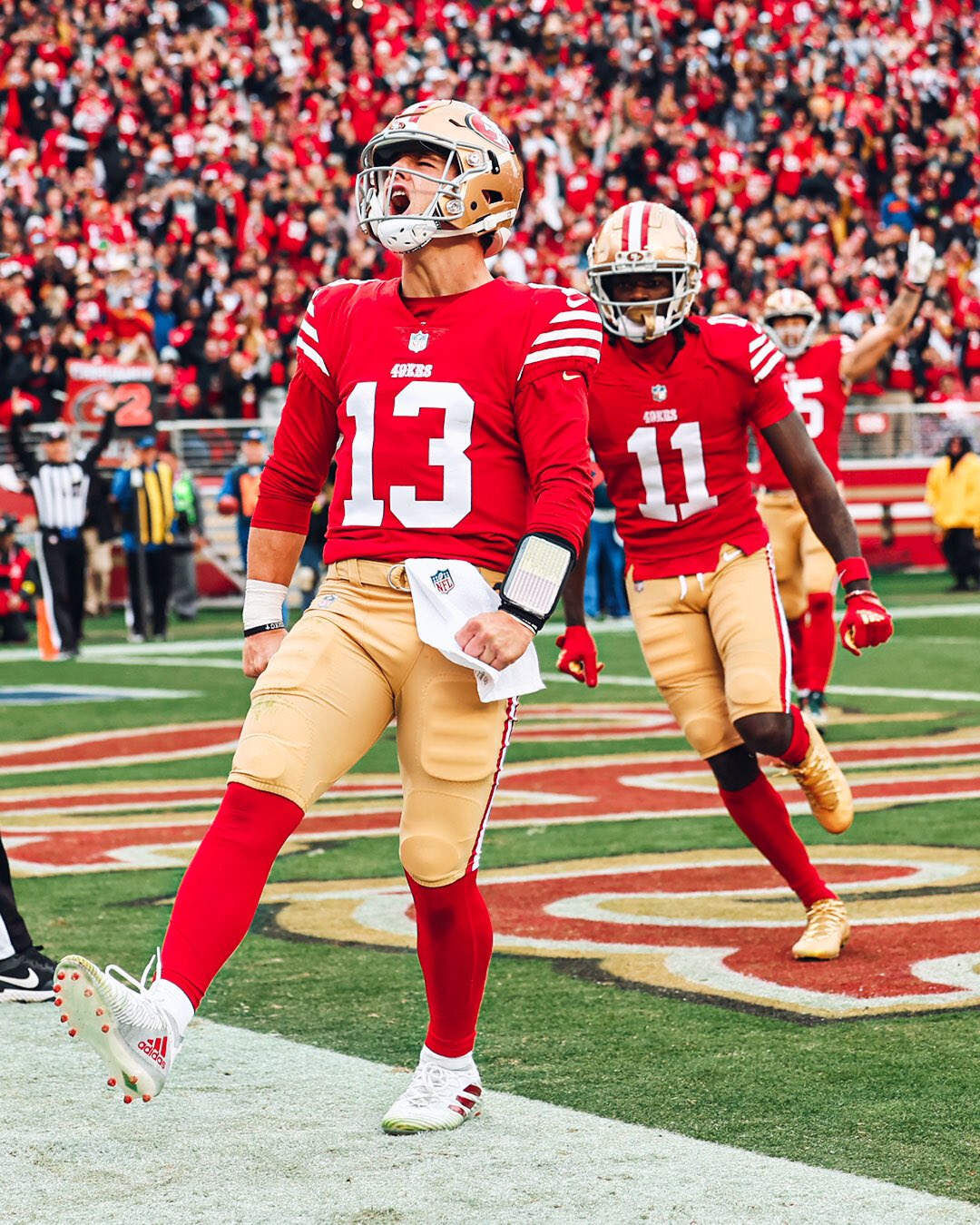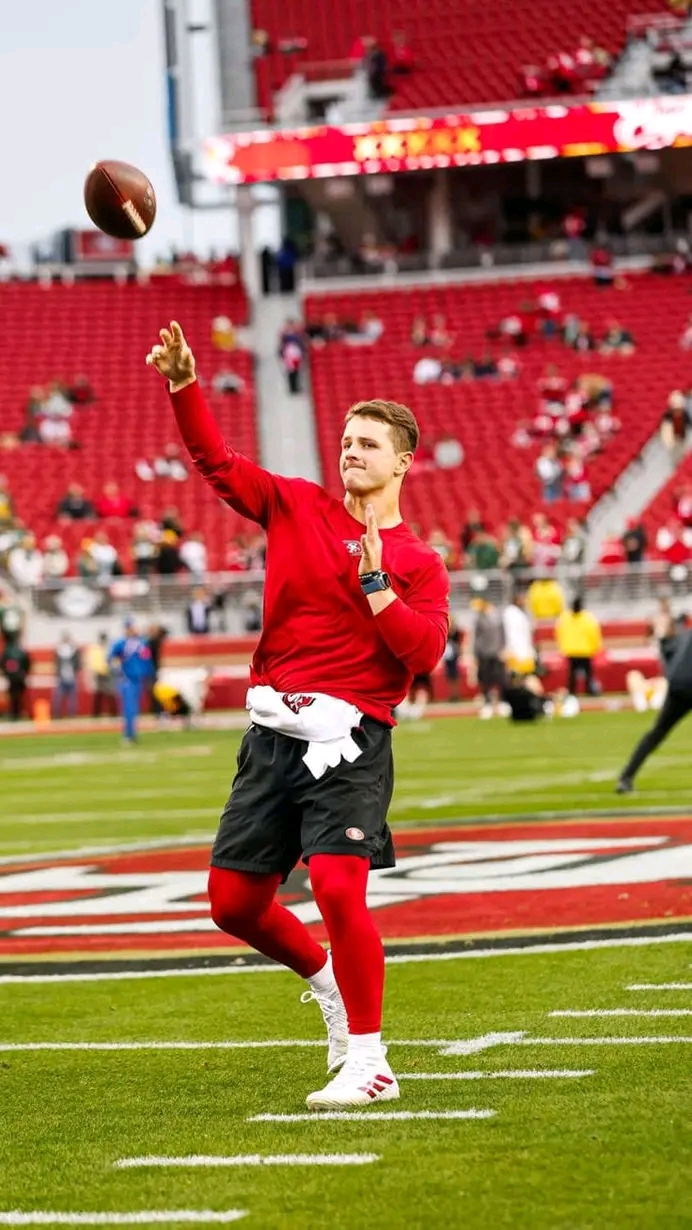
How Brock Purdy Changed Quarterback Scouting
In NFL scouting, the focus within the top 10 picks typically revolves around finding the next elite quarterback akin to Patrick Mahomes or Justin Herbert, rather than targeting prospects like Brock Purdy. However, Purdy’s impact on quarterback evaluation is notable. He has reshaped how teams assess QB talent by demonstrating that trading up isn’t always necessary to secure a franchise signal-caller. The failure of the 49ers’ attempt to trade up for Trey Lance underscores this point. Instead, Purdy highlights the value of selecting quarterbacks later in the draft who boast significant college experience and are poised to start immediately in the NFL. His example underscores the importance of readiness and collegiate playing time in quarterback evaluation, challenging the notion that the NFL serves primarily as a developmental league for this position. While experience isn’t the sole criterion for success, it remains a crucial factor in assessing draft-eligible quarterbacks.

The 49ers’ decision to trade up for Trey Lance three years ago didn’t prioritize experience, as Lance had limited college passing attempts. Instead, they were drawn to his exceptional physical abilities, youthfulness, and familiarity with a pro-style offense. However, this approach has prompted a shift in how teams evaluate current draft prospects. Evaluators now emphasize the importance of collegiate playing time, particularly for older quarterbacks with extensive passing records exceeding 1,000 attempts. Older college quarterbacks are no longer viewed solely as low-upside prospects; rather, they are recognized as potential immediate contributors in the right circumstances. This trend underscores the evolving perception of experience as a valuable asset in quarterback assessment, challenging previous notions about the significance of age and collegiate playing history.

This phenomenon exemplifies what we can call the “Brock Purdy Effect” in NFL scouting circles. It signifies a paradigm shift in quarterback evaluation, where the emphasis has shifted from raw physical talent and youth to valuing collegiate experience and readiness for immediate impact. The Purdy Effect highlights the recognition that older quarterbacks with substantial college playing time can offer a more polished skill set and be better equipped to succeed at the professional level from day one.
 This shift reflects a maturation in the understanding of quarterback development, where experience is increasingly regarded as a critical factor in identifying potential franchise signal-callers.
This shift reflects a maturation in the understanding of quarterback development, where experience is increasingly regarded as a critical factor in identifying potential franchise signal-callers.
You may also like
Related
Archives
Calendar
| M | T | W | T | F | S | S |
|---|---|---|---|---|---|---|
| 1 | 2 | 3 | 4 | |||
| 5 | 6 | 7 | 8 | 9 | 10 | 11 |
| 12 | 13 | 14 | 15 | 16 | 17 | 18 |
| 19 | 20 | 21 | 22 | 23 | 24 | 25 |
| 26 | 27 | 28 | 29 | 30 | 31 | |
Categories
- 2024 Australian Open
- 49
- 49ERS
- 49ers vs Lions
- 49ers vs. Chiefs
- 69ERS
- AFL
- AFLW
- American Football
- anonymous
- Arsenal
- Aston Villa
- AUSX 2024
- AUSX OPEN
- Baltimore Ravens
- Baseball
- Basketball
- Billionaires
- blog
- Books
- Boston Celtics
- Boxing
- Brisbane Bronco
- Buffalo Bills
- Canadian Football league
- Car Racing
- Caroline Panthers
- Celtics
- Championship
- Chelsea
- Chess
- Crystal Palace
- Cycling
- Dallas Cowboys
- Dallas Mavericks
- Dirt bike
- Djokovic
- Dodgers
- Dortmund
- Essendon Bombers
- Florida gators
- Football
- Fremantle Dockers
- Fullham
- general
- German Masters
- Giants pride
- Golden State Warriors
- Golf
- Hockey
- Houston Texans
- Indiana Fever
- Indiana Pacers
- Ipswich
- Ipswich Town
- Kansas city chiefs
- KYLE LARSON
- Lakers
- Larry bird
- LIFE STYLE
- LIFESTYLE
- Liverpool
- Los Angeles Dodgers
- Los Angeles Rams
- Mallas Cowboys
- Manchester city
- Manchester United
- Michealan Wolverines
- Michigan wolverine
- Michigan Wolverines
- Milwaukee brewers
- MLB
- MLB Aaron judge
- Motocross
- MotoGP
- Motorcross
- Music
- MXGP
- NASCAR
- NBA
- New England Patriots
- New Orleans pelicans
- Newcastle United
- NFC Championship
- NFL
- NFL Trade
- NHL
- Nottingham Forest
- Oil and Gas
- Olympic
- other
- Other Sports
- OU Softball
- PGA
- Philadelphia Eagles
- Philadelphia Flyers
- Philadelphia Phillies
- Pittsburgh Steelers
- Playoffs
- Racing
- Ravens smith
- Real Madrid
- Rugby
- San Francisco Fiants
- San Francisco Giants
- SEAL Team
- sevila
- Snooker
- Snooker Masters
- Sports
- St. Louis Cardinals
- Super Bowl LVIII
- Superbowl
- Supercross
- Ted Lasso
- Tennis
- TONY STEWART
- Toronto Raptors
- Tottenham Hotspur
- Tour de France
- Transfer News
- Uncategorized
- Video Games
- West ham
- Winnipeg Blue Bombers
- Wrexham
- WWE
Leave a Reply